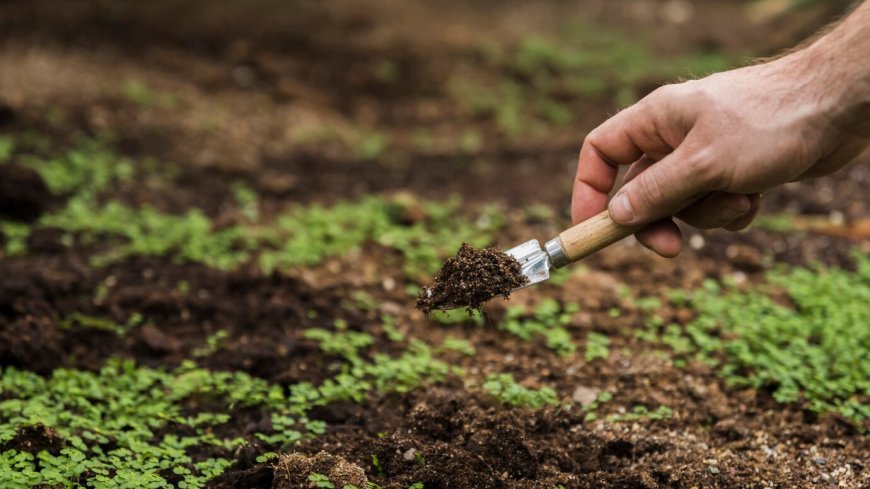Organic-Inorganic Fertilizer Equipment for High-Quality NPK Production
Discover advanced NPK fertilizer equipment for efficient organic-inorganic granulation, cooling & production. Boost yields with professional-grade machinery solutions.

The Importance of NPK Fertilizer in Modern Agriculture
As global food demand rises, farmers increasingly rely on efficient fertilizers to boost crop yields. NPK fertilizers, containing essential nitrogen (N), phosphorus (P), and potassium (K), play a crucial role in soil enrichment. Producing these fertilizers requires specialized Organic Fertilizer Equipment, including NPK granulating equipment and NPK cooler systems. These machines ensure consistent nutrient distribution, improved soil health, and sustainable farming practices.
How Organic and Inorganic Fertilizers Work Together
Combining organic and inorganic materials enhances fertilizer efficiency. Organic components, such as compost and manure, improve soil structure and microbial activity. Inorganic elements provide immediate nutrient availability. Organic-Inorganic Fertilizer Equipment blends these materials into balanced NPK formulations, maximizing crop absorption while reducing environmental impact.

Essential Machinery in NPK Fertilizer Production
NPK Granulating Equipment for Uniform Fertilizer Pellets
The granulation process shapes raw materials into easy-to-handle pellets. Different types of NPK granulating equipment cater to various production needs:
-
Rotary Drum Granulator – Ideal for large-scale operations, ensuring high output and uniform granules.
-
Double Roller Press Granulator – Compacts materials without binders, suitable for dry powder granulation.
-
Disc Granulator – Adjustable for small to medium production, creating spherical granules with minimal dust.
Each machine ensures consistent pellet size, improving nutrient release and application efficiency.
NPK Mixer for Homogeneous Blending
Before granulation, raw materials must be thoroughly mixed. Horizontal and vertical NPK mixers ensure even distribution of organic and inorganic components, preventing nutrient segregation.
NPK Cooler for Stabilizing Fertilizer Granules
Freshly granulated fertilizers retain heat and moisture, leading to clumping. The NPK cooler rapidly reduces temperature, enhancing storage stability and preventing caking. Common cooling systems include rotary drum coolers and fluidized bed coolers, both crucial for maintaining product quality.
NPK Dryer for Moisture Control
Excess moisture affects fertilizer shelf life. The NPK dryer uses controlled heat to remove water content, ensuring long-term stability and preventing nutrient degradation.
Screening and Coating for Premium Quality
After granulation, screening separates oversized or undersized pellets, while coating machines apply protective layers to minimize dust and enhance nutrient efficiency.
Advantages of Using Advanced NPK Fertilizer Equipment
-
Higher Nutrient Efficiency – Uniform granules ensure balanced nutrient release.
-
Increased Production Capacity – Automated systems enable large-scale manufacturing.
-
Cost Savings – Reduces material waste and labor expenses.
-
Eco-Friendly Operations – Minimizes dust emissions and energy consumption.
Selecting the Right NPK Fertilizer Production Line
Choosing the best Organic-Inorganic Fertilizer Equipment depends on several factors:
-
Production Scale – Match machinery capacity with output requirements.
-
Material Composition – Organic blends may require different granulation methods than inorganic ones.
-
Automation Level – Fully automated systems improve consistency and reduce manual labor.
-
Energy Consumption – Opt for energy-efficient models to lower operational costs.
Maintenance Tips for Long-Lasting Fertilizer Equipment
Proper upkeep ensures optimal performance and longevity:
-
Regularly clean granulators, mixers, and coolers to prevent material buildup.
-
Lubricate moving parts to minimize wear and tear.
-
Monitor temperature and humidity levels to avoid equipment damage.
-
Replace worn components promptly to maintain efficiency.
Future Innovations in NPK Fertilizer Production
The fertilizer industry is evolving with new technologies:
-
Smart Automation – IoT-enabled systems for real-time monitoring and adjustments.
-
Sustainable Manufacturing – Energy-efficient designs to reduce carbon footprint.
-
Enhanced Bio-Formulations – Combining organic matter with slow-release inorganic nutrients.
Conclusion
Investing in high-quality Organic-Inorganic Fertilizer Equipment, including NPK granulating equipment and NPK cooler systems, is essential for efficient and sustainable fertilizer production. By selecting the right machinery and maintaining it properly, manufacturers can ensure high yields, cost savings, and environmentally friendly operations.
For top-tier NPK fertilizer production solutions, always partner with trusted suppliers with expertise in fertilizer equipment manufacturing.

































































![https //g.co/recover for help [1-866-719-1006]](https://newsquo.com/uploads/images/202506/image_430x256_684949454da3e.jpg)












































































